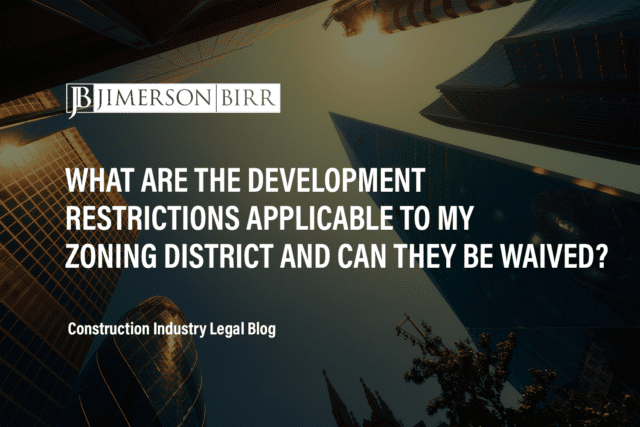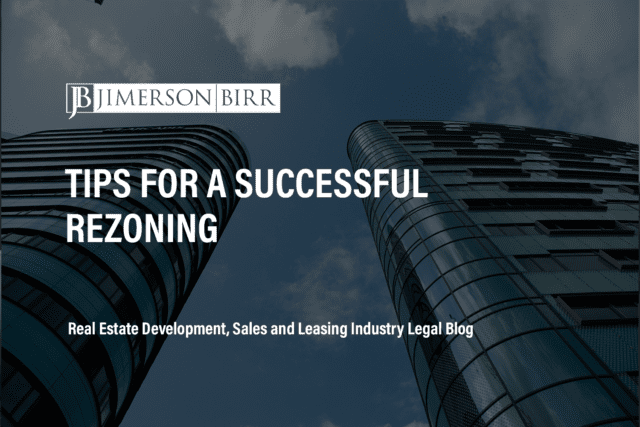What are zoning, site plans, and other land use applications?
Zoning, site planning, and other land use applications are tools used in urban planning and development to regulate land use and ensure that it is consistent with the community’s goals and objectives.
Zoning is a system of land use regulation that divides a municipality or county into different zones or districts, each with its own rules governing land use, density, building height, and other characteristics. Zoning is typically enforced through zoning ordinances or bylaws.
Site plans are detailed plans that show the proposed use of a particular parcel of land, including the location and dimensions of buildings, parking areas, access roads, and landscaping. Site plans are typically required by local governments before issuing building permits and are used to ensure that development projects meet local zoning and building codes.
Other land use applications include special permits, variances, and conditional use permits. Special use permits allow for a use not typically allowed within a particular zoning district but is deemed appropriate given certain conditions or circumstances. Variances are exceptions to zoning regulations granted on a case-by-case basis when strict rules enforcement would result in undue hardship. Conditional use permits are similar to special use permits but are granted with conditions attached to ensure the proposed use is compatible with surrounding land uses.
Need help with applications for zoning, site plans, or other land use items? Schedule your consultation today with a top land use and zoning attorney.
Which laws and regulations relate to Florida’s zoning, site plans, and other land use applications?
In Florida, these applications are primarily regulated by local laws and regulations. State laws that govern land use overall are found in the Florida Statutes §§ 163.2511 – 163.3253. These laws set out a broad framework for land use regulation in the state, including requirements for local comprehensive plans and zoning regulations. The local laws and regulations will vary by county.
What are common issues regarding zoning, site plans, and other land use applications that lead to litigation?
The following issues are among the most common in actions regarding applications in land use and zoning matters:
- Zoning Disputes: Zoning disputes can arise when a property owner believes that the zoning of a particular parcel of land is unfair or inappropriate. Common zoning disputes include challenges to zoning classifications, challenges to the validity of zoning ordinances, or changes to zoning regulations.
- Site Plan Disputes: Disputes can arise over site plan approvals, typically when a property owner believes the local government has improperly denied or conditioned approval of a proposed development project. Site plan disputes can also arise when a property owner believes that the local government has improperly modified the conditions or requirements for site plan approval after the fact.
- Environmental Issues: Environmental concerns can lead to litigation in land use matters, such as challenges to the validity of environmental impact studies, disputes over wetland or shoreline protections, or challenges to issuing permits related to environmental concerns.
- Historic Preservation: Historic preservation can lead to litigation when property owners believe that local governments have improperly designated their properties as historic landmarks or have imposed unreasonable restrictions on the use or development of historic properties.
When a set of facts is appropriate to require litigation over these applications, there are many paths a claimant may take. We are value-based attorneys at Jimerson Birr, which means we look at each action with our clients from the point of view of costs and benefits while reducing liability. Then, based on our client’s objectives, we chart a path forward to seek appropriate remedies.
To determine whether your unique situation may necessitate litigation, please contact our office to set up your initial consultation.
What are effective measures to minimize the risk of litigation over zoning, site plans, and other land use applications?
To minimize the risk of litigation, property owners and developers can:
- Communicate with Neighbors: Developers should communicate with neighbors and other stakeholders early in the development process to help address concerns and build support for the project. By engaging in open and transparent communication, developers can help mitigate potential conflicts and minimize the risk of litigation.
- Consult with Local Officials: It is essential to consult with local government officials and planners early in the development process to ensure the proposed project is consistent with local zoning and land use regulations. Seeking input from officials and neighbors can help identify potential issues and address concerns before they become significant problems.
- Conduct Thorough Research: Developers should thoroughly research the proposed project site, including environmental and historic preservation concerns, zoning regulations, and other land use considerations. This can help identify potential issues early in the process and help ensure that the proposed project complies with all applicable laws and regulations.
- Obtain Professional Guidance: Developers should consult with experienced professionals, such as land use attorneys, architects, engineers, and planners, to help navigate the complex regulatory landscape of land use in Florida. These professionals can help ensure that the proposed project complies with all applicable laws and regulations and can help identify and address potential issues early in the process.
What evidence does a plaintiff generally need to successfully file a lawsuit regarding zoning, site plan, or other land use applications, and what are common legal defenses to those claims?
Situations that may justify a lawsuit include:
- Local government officials improperly denied or conditioned approval of a proposed development project or imposed unreasonable restrictions on the use or development of the property;
- The local government officials did not follow established land use procedures or regulations in reviewing and approving the application or
- The local government officials acted in bad faith or violated the plaintiff’s constitutional rights.
To support these claims, plaintiffs may need to provide evidence such as:
- Site plan documents and other materials related to the proposed development project;
- Records of communications with local government officials, including emails, letters, and meeting minutes;
- Expert reports from architects, engineers, or other professionals;
- Appraisals and other valuation documents;
- Evidence of financial harm caused by the local government’s actions; and
- Testimony from witnesses, including neighbors, experts, and local government officials.
Common defenses against these claims include:
- The local government officials followed established procedures and regulations in reviewing and approving the application;
- The local government officials had a valid reason for denying or conditioning approval of the proposed development project, such as concerns related to health, safety, or the environment;
- The plaintiff did not exhaust administrative remedies before filing the lawsuit
To see what actions or defenses may be available for your unique situation, please contact our office to set up your initial consultation.
Frequently Asked Questions
Why do I need a site plan?
A site plan is required in many jurisdictions as part of the development review process. A site plan helps local officials, and stakeholders understand the proposed development and ensure it complies with local zoning and land use regulations.
What is a variance?
A variance is a request to deviate from the strict application of a zoning regulation. Variances are typically granted when strict compliance with zoning regulations would result in an undue hardship on the property owner or when strict compliance is not necessary to protect public health, safety, or welfare.
What is a conditional use permit?
A conditional use permit is a permit that allows a specific use of a property that is not generally allowed within a particular zoning district. Conditional use permits are typically granted when the proposed use is compatible with the surrounding area and would not have a negative impact on neighboring properties.
Have more questions about a land use application-related situation?
Crucially, this overview of zoning, site plans, or other land use applications does not begin to cover all the laws implicated by this issue or the factors that may compel the application of such laws. Every case is unique, and the laws can produce different outcomes depending on the individual circumstances.
Jimerson Birr attorneys guide our clients to help make informed decisions while ensuring their rights are respected and protected. Our lawyers are highly trained and experienced in the nuances of the law, so they can accurately interpret statutes and case law and holistically prepare individuals or companies for their legal endeavors. Through this intense personal investment and advocacy, our lawyers will help resolve the issue’s complicated legal problems efficiently and effectively.
Having a Jimerson Birr attorney on your side means securing a team of seasoned, multi-dimensional, cross-functional legal professionals. Whether it is a transaction, an operational issue, a regulatory challenge, or a contested legal predicament that may require court intervention, we remain a tireless advocate every step of the way. Being a value-added law firm means putting the client at the forefront of everything we do. We use our experience to help our clients navigate even the most complex problems and come out the other side triumphant.
If you want to understand your case, the merits of your claim or defense, potential monetary awards, or the amount of exposure you face, you should speak with a qualified Jimerson Birr lawyer. Our experienced team of attorneys is here to help. Call Jimerson Birr at (904) 389-0050 or use the contact form to set up a consultation.
Here are some blogs written by JB attorneys that provide more information about zoning, site plan, and other land use applications:

We live by our 7 Superior Service Commitments
- Conferring Client-Defined Value
- Efficient and Cost-Effective
- Accessibility
- Delivering an Experience While Delivering Results
- Meaningful and Enduring Partnership
- Exceptional Communication Based Upon Listening
- Accountability to Goals











